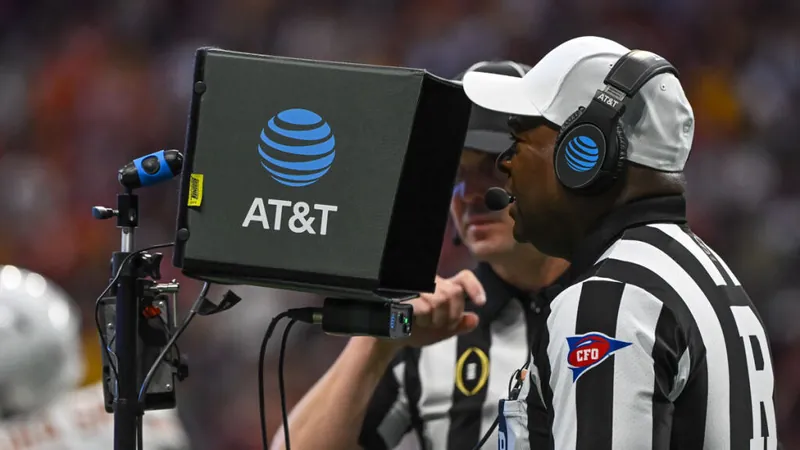
Big 12 Commissioner Calls for Accountability After Controversial ASU Targeting Non-Call
2025-01-02
Author: Jia
Introduction
In a bold move that could reshape college football officiating, Big 12 Commissioner Brett Yormark has reached out to College Football Playoff (CFP) officials regarding a controversial non-call that marred Arizona State University's (ASU) recent Peach Bowl clash with Texas.
Yormark's Statement
Yormark expressed his pride in how ASU represented the Big 12 in the playoffs despite the unfortunate outcome. “While the result wasn’t what we wanted, it’s clear the Sun Devils showcased their talent among the elite in college football this season," Yormark stated.
The Controversial Incident
The incident at the heart of this discussion occurred late in the fourth quarter of the Peach Bowl, with the teams tied at 24. ASU quarterback Sam Leavitt completed a critical pass to Melquan Stovall, only for the play to escalate when Texas defensive back Michael Taaffe delivered a hit that many viewed as helmet-to-helmet contact on a defenseless player. After a review, officials deemed the hit legal, denying ASU a potential game-changing opportunity.
Criticism of the Call
Critics of the call, including college football rules analysts, have echoed the sentiment that the hit should have been flagged for targeting. As the debate intensifies, Yormark has committed to seeking clarity on officiating protocols, stating, “We need to ensure national standards are developed. These standards will be essential for the future of the College Football Playoff.”
ASU's Athletic Director Weighs In
ASU athletic director Graham Rossini has also weighed in, revealing that he spoke with Yormark about the need to address inconsistencies in targeting calls. “We need an understanding of how targeting is applied across different conferences and ensure we have clarity on what constitutes targeting,” he urged. Rossini acknowledged that while the decision cannot be changed, the Sun Devils had other opportunities to clinch the game.
Challenges Faced by ASU
Moreover, it is worth noting that ASU faced its own challenges regarding targeting penalties prior to the Peach Bowl. Defensive back Shamari Simmons was sidelined for the first half after a targeting call in the Big 12 title game, a decision that ASU unsuccessfully attempted to appeal. Head coach Kenny Dillingham has also expressed his confusion over the rules, emphasizing the need for better communication and understanding within the sport.
Conclusion
Dillingham stated, “We lost one of our best players for a targeting foul, and I’m left questioning what targeting truly means. Player safety is paramount, and I fully support any rules in place to protect our athletes.” As the college football community rallies around this issue, it remains to be seen what changes may come to officiating standards moving forward. The stakes are high, as the adequacy of targeting calls could play a pivotal role in future playoff scenarios and the fair treatment of teams involved.


 Brasil (PT)
Brasil (PT)
 Canada (EN)
Canada (EN)
 Chile (ES)
Chile (ES)
 Česko (CS)
Česko (CS)
 대한민국 (KO)
대한민국 (KO)
 España (ES)
España (ES)
 France (FR)
France (FR)
 Hong Kong (EN)
Hong Kong (EN)
 Italia (IT)
Italia (IT)
 日本 (JA)
日本 (JA)
 Magyarország (HU)
Magyarország (HU)
 Norge (NO)
Norge (NO)
 Polska (PL)
Polska (PL)
 Schweiz (DE)
Schweiz (DE)
 Singapore (EN)
Singapore (EN)
 Sverige (SV)
Sverige (SV)
 Suomi (FI)
Suomi (FI)
 Türkiye (TR)
Türkiye (TR)
 الإمارات العربية المتحدة (AR)
الإمارات العربية المتحدة (AR)